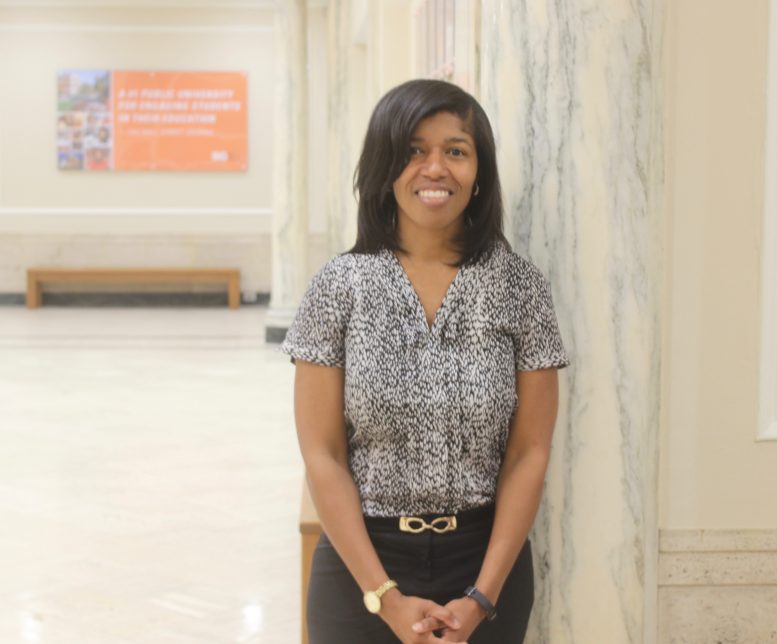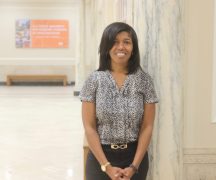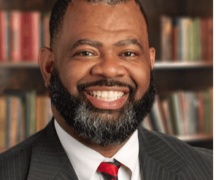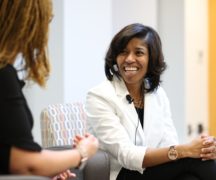By DAVID DUPONT
BG Independent News
Promoting Bowling Green State University as a campus that welcomes a diverse population and makes all members of that community feel like they belong has become an increasingly pressing campus mission.
In recognition of that, the university’s Board of Trustees will create a committee to focus on those efforts. The ad hoc Diversity and Belonging Committee met late Friday morning as part of the trustees’ two-day meeting. All sessions were conducted virtually using Zoom.
The proposal to create a new standing committee “reflects an imperative we’ve long had,” said Betty Montgomery, who chairs the board.
Jennifer McCary, the university’s chief diversity and belonging officer, presented an overview of what’s now being done, including the creation of a Comprehensive Strategy and Plan to guide the initiative.
BGSU is a predominantly white campus. She reported 79 percent of undergraduate students are white, and 74 percent of the graduate students are white. Also, 7 percent of the undergraduate population is Black, and 5 percent of the graduate student body. Those figures for Hispanics are 5 and 4 percent respectively. For faculty, 84 percent are white, and 85 percent of staff.
The university has a gap in graduation rates. In the class of 2020, 25.3 of African-American students graduated within four years. Among Hispanic students, 36.6 percent graduated within four years. For Asian students, 48.3 students graduated within four years. And just over half of white students graduated in that period.
The gap is shrinking in some instances, but widening in others, she noted.
This graduation gap does not just affect students from underrepresented groups. The university’s state funding depends on its success in retaining and graduating students.
Also, every additional year it takes a student to graduate just adds to the expense of obtaining a degree, McCary said.
“If we focus on the gaps, we’ll lift all boats,” said Trustee Linda Forte.
President Rodney Rogers said that COVID has and will continue to complicate the university’s efforts to recruit, retain and graduate these students.
The pandemic has affected many of these minority students disproportionately, including their education. BGSU needs to work with schools to help address these issues.
The Division of Diversity and Belonging conducted an initial survey to find out if members of the campus community feel a sense of belonging. McCary said she and President Rodney Rogers had set a mark of 65 percent.
Rogers said that with everything going on in the country, including the coronavirus pandemic and social unrest, they weren’t sure what to expect.
The survey, however, exceeded that number. The survey found that more than 78 percent of faculty, administrators, and staff agreed or strongly agreed with the statement: “I feel a sense of belonging with the BGSU community as a whole.”
Of the 1,461 students who responded, 85.4 percent agreed or strongly agreed with that statement.
Rogers said the challenge is to maintain that level.
McCary allowed that the student response to the survey, which was sent to all students, was low. She said it could be a result of “survey fatigue.” She’s hoping that student responses will be greater when the survey is administered again in February, earlier in the semester.
One of the goals of the initiative is to recruit a more diverse faculty.
Trustee Howard Traul did raise a concern about the goal of increasing “diverse hires” by 5 percent by 2023. He warned against using quotas, and crossing lines into discrimination. “We want the best people regardless who they are.” He later qualified his remarks to reflect that he does recognize the need for diversity in hiring.
McCary said “human resources is very careful to make sure we are not doing anything that isn’t equitable.”
Montgomery said that “it’s a fine line.”
“We have to be very careful about meeting our goals,” she said. She expressed confidence that the university administration would do that.
Trustee Marilyn Eisele said the key is getting a diverse pool of candidates. “Make sure we have a broader pool.”
This involves looking at what’s expected in the hiring process. Some requirements reflect “unconscious bias,” Montgomery said.
“It’s really about opportunity,” said Provost Joe Whitehead. The way job ads are crafted is important, so any impediments that discourage some candidates are removed.
Another goal is to graduate students with the “cultural competence” that is “necessary to lead a meaningful and productive life in a diverse world.”
Traul said that as students “fan out across the country” to find jobs, this becomes all the more important.
Eisele said these efforts have grown in importance because of COVID-19 and its exposure of the inequalities in our society as well as because of the Black Lives Matter movement. “It was important before, but now it’s accelerated.”
Montgomery said that the board will act at its March meeting to make the ad hoc committee a standing committee.





